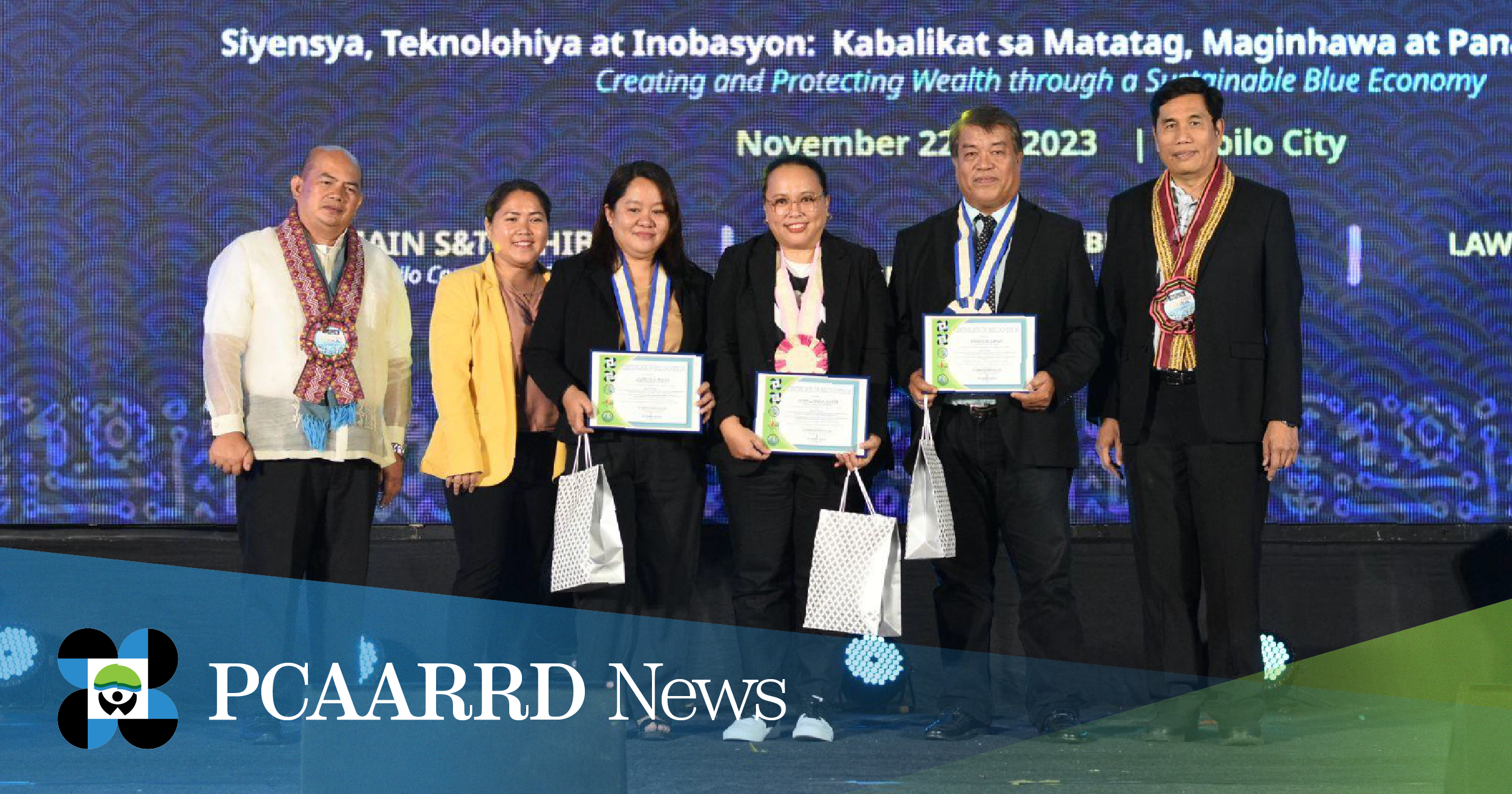The second day of the National Science, Technology, and Innovation Week (NSTW) 2023 in Iloilo City witnessed a retroactive discussion of various science and technology initiatives for the enhancement of the Philippine Blue Economy.
Understanding and addressing microplastic pollution
Diving into the challenges of the Blue Economy, Dr. Lilibeth Bucol of the Negros Oriental State University (NORSU) discussed their study on the impacts of microplastic pollution on the seas and its resources.
The study was able to detect levels of microplastic contamination in various seafood samples collected in the coastal areas of Negros Oriental. Seafoods such as ‘danggit’ and clams are among the samples that have microplastic contamination. On processed products, the research team found traces of microplastics in ‘tuyo’ and ‘ginamos.’
According to Dr. Bucol, the results of the study are indeed alarming and proper intervention is needed to reduce the harmful impacts of microplastics. She added that the best intervention is still to reduce human plastic consumption and ensure proper waste management.
As supplements, innovative solutions against microplastic can also be considered. Bioplastics from indigenous raw materials such as algae and fruit peelings are now being tested as possible plastic alternatives. Another is the practice of sustainable aquaculture such as using biodegradable plastic fishing gears. Other technologies for better water filtration are also being developed in other countries.
Impact of COVID-19 pandemic on small-scale fisherfolk
Meanwhile, Dr. Jesrelljane Aaron-Amper of Bohol Island State University (BISU) took the helm in discussing the impacts of the COVID-19 pandemic on small-scale fisherfolk in Northern Bohol.
According to the study, small-scale fishing communities in Bohol took a hit during the pandemic. Similar to the national situation, the communities suffered from health problems, educational constraints, financial challenges, and unemployment. To adapt to challenges, some fisherfolk risk the use of blast fishing to increase their catch in the hopes of earning more profit.
Following the study, Dr. Aaron-Amper and her team developed policy recommendations to support local sectors of the blue economy. Among them is the creation of an integrated framework specifically tailored to the needs of small-scale fisherfolk. This may involve streamlining permit applications, simplifying access to support programs, and ensuring a unified approach to addressing the needs of the sector.
A blooming seaweed economy
Lastly, Dr. Danilo Largo presented the potential of sargassum as one of the drivers of the Blue Economy in the country.
Sargassum or the common gulfweed is a seaweed that mostly thrives in temperate and tropical waters around the world.
Dr. Largo’study, “Culture and Phenology of the Brown Seaweed Sargassum In Southern Philippines,” has developed Sargassum farming practices to help boost the industry and established a hatchery system for the mass propagation of Sargassum seedlings. After this, the team outplanted the seedlings into the open seas. They also aim to produce intellectual property assets such as patents, culture manuals, management plan primers, and scientific publications. Capacity-building activities were also held to improve farming practices among local Sargassum farmers.
All three studies were presented during the NSTW 2023 technology forum and are funded and monitored by the Philippine Council for Agriculture, Aquatic and Natural Resources Research and Development of the Department of Science and Technology (DOST-PCAARRD).
NSTW is an annual science event showcasing DOST’s leading efforts and innovative solutions in science, technology, and innovation. With the theme, “Syensya, Teknolohiya, Inobasyon: Kabalikat sa Matatag, Maginhawa at Panatag na Kinabukasan” and “Creating and Protecting Wealth through a Sustainable Blue Economy,” this year’s NSTW was conducted at the Iloilo Convention Center (ICON) on November 22-26, 2023.

